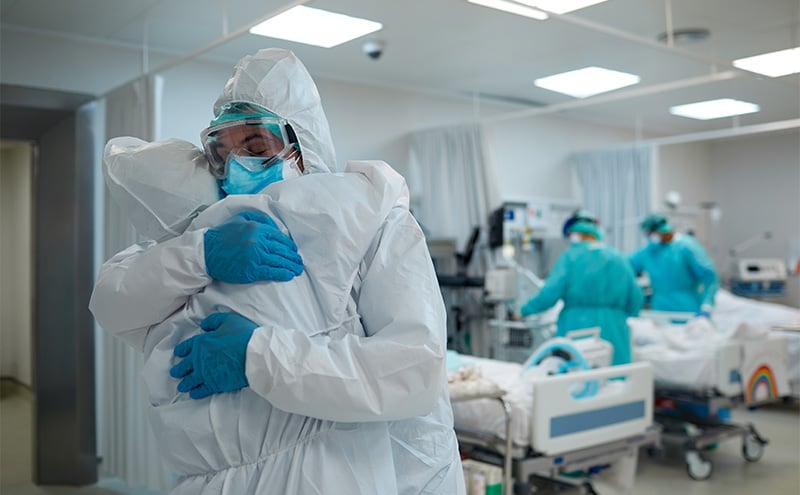
Collaboration Yields Rewards in Responding to the COVID-19 Disaster
The challenges presented by COVID-19 has strained the medical community in vast, diverse ways. Professional work stress due to illness of key staff members, low staffing levels making it challenging to care for ongoing volumes of patients, lack of PPE, the emotional strain on the healthcare professionals and their families, to name just a few. Healthcare facilities had to rapidly implement protocols and processes to safeguard the health of our citizens and healthcare providers. Healthcare professionals have cooperated with many entities in unique and interesting ways to rise and meet the challenges. Many businesses donated equipment, offered unique skills, and developed new inventions in battling this pandemic. Months later, this nation and the world has made giant strides, but we continue to struggle to defeat COVID-19.
SARS-CoV2 has affected almost every facet of our lives. There are numerous examples of how industry, arts, and medical leaders have come together to address the many dilemmas created by COVID-19. From Ford Motor Company building ventilators, to audio manufacturer JBL partnering with brand ambassadors and donating headphones to the nonprofit organization, Little Kids Rock, for virtual education, unique partnerships have helped us weather the storm of COVID-19. Quietly, many others have strengthened the collective response in battling this deadly disease. An outstanding example of collaborative forces coming together in the fight against this pandemic occurred when a nasal swab supply chain deficiency arose in northeast Kansas. Nasal swabs were being diverted to harder hit areas of the country threatening the availability of adequate testing at a time when cases were escalating. Leaders from a local hospital began to trouble-shoot solutions. They realized that 3D printing could be utilized to construct nasal swabs. After many hours of research into the requirements for mass production of nasal swabs, hospital leadership connected with scientists at Kansas State University to develop the necessary swabs. Additional alliances with the Kansas Department of Health and Environment and the Northeast Healthcare Coalition cemented partnerships that eventually culminated in a nasal swab supply adequate to permit sustained COVID-19 testing.
As this pandemic continues, it is likely that ongoing or recurrent supply chain deficiencies will persist. Lack of all types of PPE and supplies such as gowns, gloves, surgical masks, and N95 masks can be anticipated to present recurrent problems. Uniting with talented and willing partners invested in combating the spread of Coronavirus will prove to be essential. Building alliances both within and outside of the medical community can improve resilience until we overcome this infectious disease disaster.
By Lillian Lockwood, MD, FACEP


